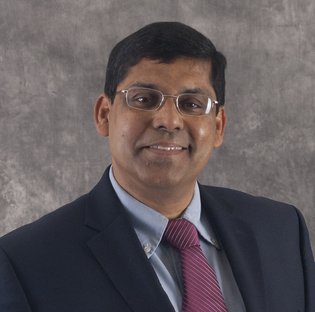Smart Sensing to Smart Living: The Era of IoT, AI/ML and Data Science
Speaker: Sajal K. Das, Missouri University of Science and Technology, USA
This half-day tutorial at EWSN aims to transcend from smart sensing to smart living, the goal of which is to leverage fundamental social-technical research and development to improve human quality of life, including security and safety. In particular, the attendees will learn how to design, model, analyze, implement, and validate Smart Living CPS and IoT systems.
We live in an era in which our physical and cyber worlds are becoming increasingly intertwined due to the advent of smart sensors, CPS, IoT, wireless communications, pervasive computing, coupled with a variety of intelligent tools and techniques based on AI, machine learning, and data science. Alongside, smartphones have empowered the human world to interact with both the physical and cyber worlds and collect fine-grained information and opinions via mobile crowdsensing about events of interest, resulting in actionable inferences and decisions. This synergistic tripartite relationship has led to the development of Smart Living CPS and IoT systems that impact our daily life, such as smart homes and cities, smart grid, smart transportation, industry 4.0 and smart manufacturing, smart health, smart agriculture, smart education, smart governance, and so on. However, such systems pose significant challenges due to the complexity, heterogeneity, uncertainty, scale, interdependence, resource availability, dependability, human behavior randomness, security, privacy, and trust issues.
Although there has been a proliferation of research in sensor and IoT networks applied to a variety of smart living CPS domains, what is missing is a unified data-driven approach to designing and analyzing these systems despite that the physics models are distinctly different. To fill in the significant gap, this tutorial will (a) highlight unique socio-technical research challenges in designing sensor-embedded smart living CPS; (b) develop novel data-driven frameworks and models to realize such systems; (c) design anomaly detection techniques for secure and trustworthy decisions; (d) validate the proposed models with real-world datasets of smart grid, smart transportation, smart water meters, smart health, and smart agriculture; and (e) provide future directions of research. The underlying methods are based on rich theoretical and practical design principles, e.g., AI/ML, data science, sensor fusion, uncertainty reasoning, information theory, behavior models, prospect theory, reputation and belief models, graph theory, and game theory.

Speaker’s Bio: Sajal K. Das is an internationally recognized computer scientist. He is currently the Curators’ Distinguished Professor of Computer Science and Daniel St. Clair Endowed Chair at Missouri University of Science and Technology, USA. His research expertise includes CPS, IoT, wireless and sensor networks, smart environments, machine learning, cyber-security, UAVs, mobile/pervasive computing, and edge/cloud computing. He has made fundamental contributions to these areas, published 300+ papers in high-quality journals, 450+ papers in peer-reviewed conference proceedings, 4 books, and 5 US patents. A recipient of 12 Best Paper Awards at prestigious conferences like ACM MobiCom, IEEE PerCom, and IEEE SMARTCOMP, he received the IEEE Computer Society’s Technical Achievement Award for pioneering contributions to sensor networks, and the University of Missouri System President’s Award for Sustained Career Excellence. His h-index is 99 with 41,600+ citations. He is the founding Editor-in-Chief of Elsevier’s Pervasive and Mobile Computing, and Associate Editor of the IEEE Transactions on Dependable and Secure Computing, IEEE Transactions on Sustainable Computing, IEEE Transactions on Mobile Computing, ACM/IEEE Transactions on Networking, and ACM Transactions on Sensor Networks. He has graduated 11 postdocs, 51 Ph.D. and 31 MS thesis students. He is a Distinguished Alumnus of the Indian Institute of Science (IISc), Bangalore and a Fellow of the IEEE, National Academy of Inventors (NAI), Asia-Pacific Artificial Intelligence Associate (AAIA).
